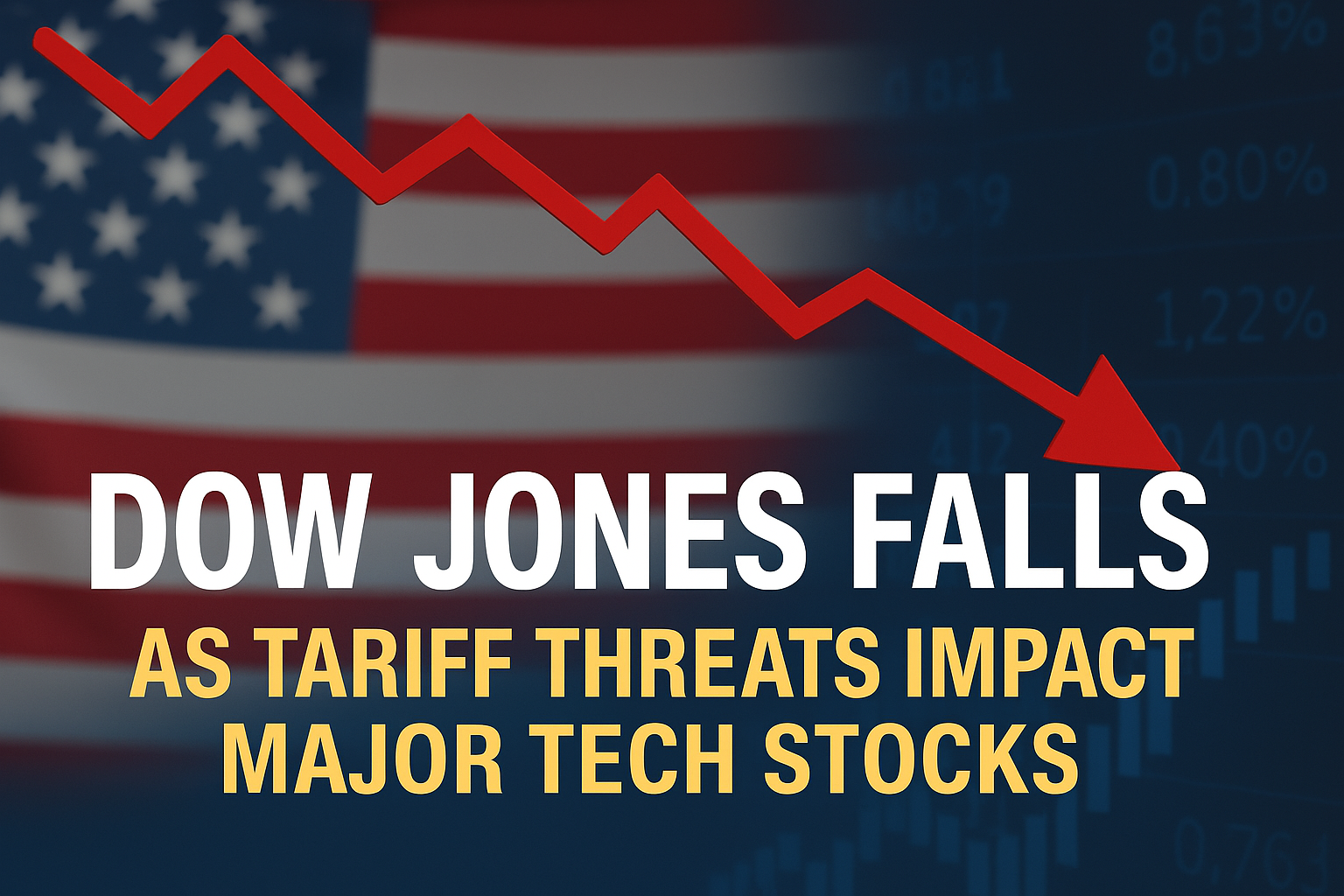Market Jitters Return as Trade Tensions Take Center Stage
Wall Street stumbled sharply on Monday, reigniting fears of renewed trade volatility after former President Donald Trump escalated his rhetoric on tariffs against China. The Dow Jones Industrial Average slid 349 points (-0.9%), as investors digested warnings of punitive levies exceeding 115% on Chinese imports—a move that could disrupt global commerce and place pressure on corporate earnings, especially in the tech sector.
Major tech players like Apple (AAPL) and Tesla (TSLA) bore the brunt of the selloff, with investors concerned about their exposure to Chinese manufacturing and supply chains. On the flip side, U.S. Steel (X) rallied more than 4%, buoyed by the potential derailment of Nippon Steel’s acquisition attempt, which is now under heightened scrutiny due to national security concerns.
Why This Matters for Investors
Tech Sector in the Crosshairs
Tech stocks were among the hardest hit, as their reliance on Chinese production and markets makes them especially vulnerable in times of trade conflict. Apple, for example, sources an estimated 95% of its iPhones from China, while Tesla’s Shanghai Gigafactory remains one of its most productive facilities globally. Any disruptions to supply chains or increased import costs could sharply erode margins and delay innovation cycles.
“The tariff threats are a direct risk to revenue and cost structures for U.S. tech firms,” said Lauren Peters, Chief Market Strategist at Sterling Advisory. “It’s a stark reminder that political volatility can still move markets in very real ways.”
Steel and Industrial Stocks Gain Ground
In contrast, domestic-focused industries such as U.S. steel producers have found unexpected upside. The Committee on Foreign Investment in the United States (CFIUS) announced it would review the $14.1 billion Nippon Steel–U.S. Steel deal, citing economic sovereignty concerns. That news, paired with the tariff discourse, injected momentum into domestic industrials, which are often seen as beneficiaries of protectionist policies.
Key Market Movements on April 8
- Dow Jones: -349 pts (-0.9%)
- Nasdaq Composite: -1.2%
- S&P 500: -0.8%
- Apple (AAPL): -2.4%
- Tesla (TSLA): -3.1%
- U.S. Steel (X): +4.2%
(Data source: Investor’s Business Daily)
Analyst Commentary & Broader Outlook
The sharp divergence in stock performance underscores the market’s increasing sensitivity to geopolitics. A report from Goldman Sachs suggests that if the proposed tariffs are implemented, U.S. GDP growth could take a 0.4% hit in 2025, primarily due to reduced export competitiveness and higher input costs.
Meanwhile, Investor’s Business Daily notes that traders are positioning defensively, with increased flow into sectors like defense, utilities, and select commodities. “It’s not just about tariffs,” says analyst Michael Renshaw. “It’s about a potential recalibration of the global trade order, and markets are trying to price that in—fast.”
Future Trends to Watch
- Domestic Industrial Renaissance: With policy sentiment favoring U.S.-based manufacturing, watch for investment and hiring boosts in industrial hubs.
- China Exposure Premium: Companies heavily dependent on Chinese operations may face increased scrutiny from both investors and regulators.
- Volatility as the New Normal: As the 2024 election cycle’s economic themes bleed into 2025, geopolitical risk is expected to remain a key market mover.
Key Investment Insight
In today’s volatile climate, sector diversification is more critical than ever. Investors may want to hedge exposure to China-sensitive stocks while considering increased allocations to domestic manufacturing, defense, and infrastructure sectors.
Those with longer-term horizons should watch for entry opportunities in oversold tech names, but only once tariff-related risks are better priced in or de-escalation occurs.
Stay Ahead with MoneyNews.Today
Markets are being shaped not just by earnings, but by geopolitics. As tariff talk heats up and sector winners and losers emerge, stay informed with MoneyNews.Today—your reliable source for sharp, timely market intelligence.





